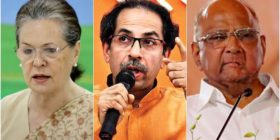NEW DELHI: Congress leader Sajjan Kumar was on Tuesday acquitted of all charges in the 1984 anti-Sikh riots case. The Delhi court, however, convicted five others in the case relating to killing of 5 Sikhs by a mob in Delhi Cantonment area here in 1984.
The pronouncement was followed by protests outside the court. PTI reported that one of the protestors hurled a shoe at the judge after he acquitted Sajjan Kumar of all charges.
According to Times Now, Rapid Action Force was deployed to control the angry protestors. District Judge J R Aryan had reserved the judgement on April 16 after the counsel for the CBI and the accused concluded their final arguments in the case.
Former Outer Delhi MP, Kumar was facing trial along with five others – Balwan Khokkar, Kishan Khokkar, Mahender Yadav, Girdhari Lal and Captain Bhagmal – for allegedly conspiring and inciting a mob against the Sikh community in Delhi Cantonment area.
The case relates to anti-Sikh riots that had broken out after the assassination of then Prime Minister Indira Gandhi on October 31, 1984. Indira Gandhi was shot dead by two of her bodyguards at her residence here.
The present case deals with the death of five Sikhs– Kehar Singh, Gurpreet Singh, Raghuvender Singh, Narender Pal Singh and Kuldeep Singh– who were members of the same family and were killed by the mob in Delhi Cant’s Raj Nagar area.
Deceased Kehar and Gurpreet were the husband and son respectively of complainant and eye witness Jagdish Kaur. Raghuvender, Narender and Kuldeep were the brothers of Kaur and another witness Jagsher Singh.
The case against Kumar was registered in 2005 on a recommendation by Justice G T Nanavati Commission. CBI had filed two charge sheets against him and the other accused in January 2010.
The trial court had in May 2010 framed charges against Kumar and the five others under Sections 302 (murder), 395 (dacoity), 427 (mischief to cause damage to property), 153-A (promoting enmity between different communities), 120B (criminal conspiracy) and other provisions of the IPC.






Leave a reply